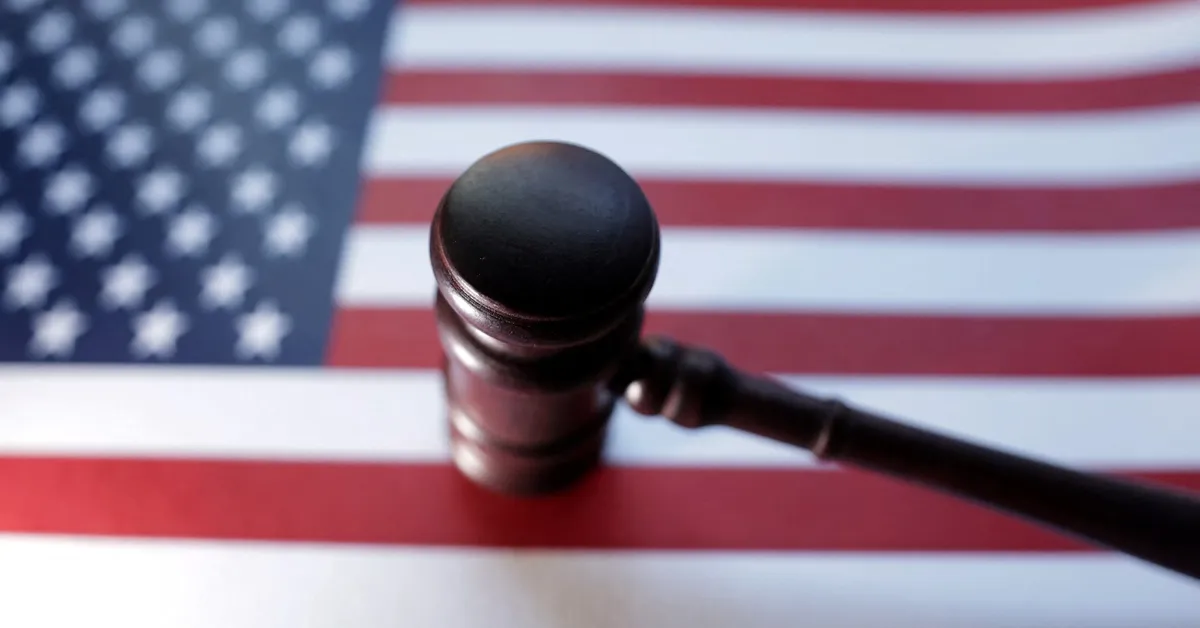
On August 31, a significant legal development occurred when a U.S. federal judge intervened to halt the deportation of a group of migrant Guatemalan children who were already boarded onto planes. This emergency ruling came after their legal representatives filed a pre-dawn appeal, highlighting the ongoing challenges surrounding immigration policies during the Trump administration.
The urgent motion was submitted by the National Immigration Law Center, a pro-immigrant advocacy group, shortly after 1 a.m. ET on Sunday. The case was brought before the U.S. District Court in Washington, D.C., where Judge Sparkle Sooknanan presided over a rare hearing during the holiday weekend. The judge revealed that she had been alerted to the case at 2:35 a.m. and subsequently issued a temporary restraining order to prevent the removal of the 10 unaccompanied migrant children, aged between 10 and 17, for a period of 14 days.
Furthermore, Judge Sooknanan expanded the order to encompass any other unaccompanied minors from Guatemala currently in the custody of the U.S. Department of Health and Human Services (HHS), which could potentially include hundreds of children. She instructed government attorneys to confirm by Sunday afternoon that the children had been removed from the planes.
Despite the deadline set by Judge Sooknanan, the government failed to provide confirmation by the specified time. In response, the judge demanded an explanation for this oversight during a follow-up session on Sunday evening. The legal developments echoed previous last-minute court challenges to deportation efforts initiated during the Trump administration.
President Donald Trump had implemented a stringent immigration policy aimed at tracking and deporting unaccompanied migrant children upon his return to the White House in January. Children arriving at U.S. borders without a parent or guardian are classified as unaccompanied and placed in federal shelters until they can be reunited with family members or placed in foster care, in accordance with federal law.
In July, Guatemalan President Bernardo Arevalo announced that his government was collaborating with the U.S. to facilitate the repatriation of unaccompanied children. However, during the emergency hearing, Judge Sooknanan sought assurances from the Department of Justice that no Guatemalan children had been deported prior to the court's order. Justice Department attorney Drew Ensign confirmed that while no children had been officially removed, some had been placed on planes.
Furthermore, Ensign indicated that one plane might have taken off but later returned following the judge's directive. An attorney from the National Immigration Law Center, Efren Olivares, informed the court that some children still appeared to be on planes in Harlingen and El Paso, Texas.
Ensign asserted that all children's parents or guardians in Guatemala had requested their return through the Guatemalan government, a claim contested by Olivares. Meanwhile, Stephen Miller, White House Deputy Chief of Staff, criticized Judge Sooknanan for obstructing the deportations, arguing that the minors had self-reported their parents' presence in Guatemala.
The U.S. Department of Homeland Security and the Office of Refugee Resettlement, which oversees unaccompanied children, indicated signs of a new deportation initiative emerging the previous week. Melissa Johnston, director of HHS' unaccompanied children program, issued an email to staff prohibiting the release of Guatemalan children in federal custody unless they were sponsored by parents or legal guardians.
The complaint filed by the National Immigration Law Center and the Young Center for Immigrant Children's Rights highlighted that such deportations would represent a clear violation of the protections granted to vulnerable children by Congress. The complaint emphasized that returning these children to Guatemala could expose them to potential abuse, neglect, persecution, or torture.
Among the plaintiffs in the case was a 10-year-old indigenous Guatemalan girl whose mother had died and who had faced abuse and neglect from caretakers. The complaint indicated that the children had been held in shelters or foster care across various states, including California, Texas, Pennsylvania, and New York.
This ongoing legal battle underscores the complexities of immigration policy in the U.S. and raises critical questions about the treatment of unaccompanied migrant children and their rights under federal law.